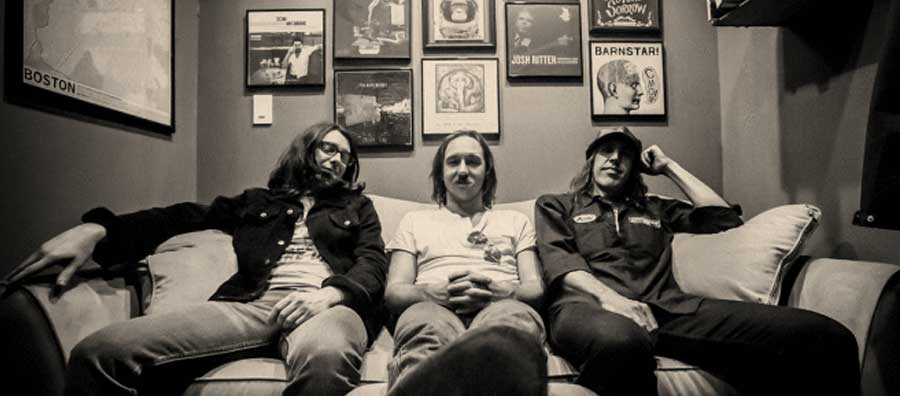
Tell us about your tour vehicle. Any notable breakdown stories?
We’ve got an early 2000’s Ford Econoline 350 15 passenger van. Her name is peaches. I’d guess she’s closing in on 200,000 miles but I really can’t recall off the top of my head because I’m the worst driver in the band. A lot of investment has gone into keeping her running strong and so far she hasn’t let us down. We’ve had to replace the tires, brakes and shocks so far but it’s been worth it.
Before the current van, my old car was our primary transportation to gigs. That car ended up bursting into flames on the way to a gig in Newport, RI. Luckily the engine gave out just before we got to the Jamestown Bridge, otherwise it could have been so much worse. We were lucky enough to get our gear out of the car before it was too late. The Low Anthem just so happened to also be on their way to Newport and pulled over to help us. They loaded our gear into their van as I was giving my info to the state trooper. After the wrecking crew hauled what was left of my car away, they dropped us off at our gig. The band ended up being totally on point that night after the shock of processing what we had just survived.
How do you eat cheaply and/or healthy while on tour?
We always order the most expensive thing on the menu because we’re worth it. Mental health is important, too.
How many strings, cymbals and drum heads do you break in a typical year? How much does it cost to replace them?
Tyler-James must burn through thousands of dollars in strings every year. He only get a couple gigs out of a set, if that. Sam is the kind of guy who has thought of and prepared for every possible situation. He’s got several different drum kits to choose from depending on any particular venue we’re booked at. I don’t think he’s broken any cymbals or drum heads since we’ve been playing together. I’ve been using flat-wound bass strings so I’ll probably never change the strings on any of my basses.
Where do you rehearse?
Rehearsal space? That’s what gigs are for. In all seriousness, we rehearse around Tyler-James’ pool table. We keep a busy schedule with gigs so we don’t spend a lot of time rehearsing as a band, but it’s all business when we do.
Describe your first gig.
There were several incarnations of The Silks before I joined. My first gig with the band was the finals for a battle of the bands organized by Rhode Island College’s radio station, WXIN, I believe. One day I get a call from Tyler asking if I was still interested in getting together to play some music. We ended up making plans to get together the next Thursday and hang up the phone. Five minutes later, he calls me back to ask if I can play a gig that Friday. I met and rehearsed with the new drummer that Thursday and we ended up taking 2nd place in the battle of the bands Friday.
What was your last day job? What was your favorite day job?
Tyler does music full time. He teaches guitar as well as recording and performing with The Silks, Cowboy and Lady and solo. Sam does a lot of freelance work in web design and marketing. I work part-time at a restaurant on the side.
How has your music-related income changed over the past 5-10 years? What do you expect it to look like 5-10 years from now?
My own personal music-related income was non-existent between 5-10 years ago and that is no longer the case so I’d say that’s an improvement. Obviously, it would be nice to not need the side work but Rome wasn’t built in a day. Our main goal is to be self-sufficient and that requires investing into the band.
What one thing do you know now that you had wished you knew when you started your career in music?
The one thing I know now that I hadn’t fully realized in the past is that if a band can draw an audience and keep the bar selling drinks, then there is most definitely value in that. Bands that have worked hard and built a following owe it to themselves and their peers to recognize that. I grew up in my local scene hearing the term ‘sellout’ thrown at any band that took the business end seriously. I think many artists are conditioned to believe that their work has no monetary value but that is often not the case.
